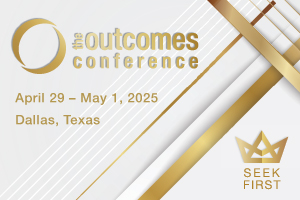
A Pauline Perspective on Locating Best Practices by Dr. Gary Hoag
What is a Pauline perspective on locating best practices?
Every winter for more than a decade I have facilitated a research project with a peer group of evangelical seminary leaders. We share various data points linked to advancement—ranging from communications to development—and analyze insights that surface in the findings.
We look at trends in restricted, unrestricted, and endowment giving. We assess how support from different constituencies (such as board members, alumni, friends, churches, foundations, and other sources) varies year over year. We compare budgets to gain insight on allocating the limited resources in our stewardship.
We share everything from time-tested strategies to innovative ideas so we can learn from each other. We also report tactics to abandon and traps to avoid that may appear to produce results according to the world’s measures but actually be counterproductive from a kingdom perspective. Why does each participant commit so much energy each year to “Christ-centered peer collaboration” activities?
The Apostle Paul would likely say it’s how to locate best practices. Let me explain.
In his first letter to the Corinthians, before outlining practices for them he makes this statement: “Follow my example, as I follow the example of Christ” (1 Corinthians 11:1). Everything Paul did (and everything we should do) must be first and foremost, “Christ-centered.”
Since Christ was not physically present with them, Paul wanted fellow stewards to learn from his example. This is where “peer collaboration” surfaces. In writing the church in Philippi, Paul adds: “The things you have learned and received and heard and seen in me, practice these things, and the God of peace will be with you.” Philippians 4:9
Paul uses four verbs in locating best practices. The Philippians were to practice what they “learned.” This verb is the word from whence we get the term “disciple” and refers to practices that a person has been taught. The second verb is related to it as it refers to the content they “received.” The next two verbs, that which was “heard” and “seen,” connote what they had witnessed from a distance in the community of faith. All four words require collaboration.
So what does all this have to do with locating best practices today among peers?
Consider taking these four steps.
(1) Form a peer group of steward leaders
Find peers in whatever sector of ministry you serve, such as seminary education, relief and development, rescue mission work, or some other area. Whether you meet them at the CLA conference or another gathering, identify about a dozen people that could benefit from peer learning.
(2) Ask steward leaders to make a commitment
The peer group of seminary leaders that I work with commits to maintaining our Christ-centeredness and to keeping our peer interaction confidential. Within those safe confines, we share what we have learned and received and heard and seen so that everyone can benefit. Specifically, we all share a list of the same data points at the same time annually. As facilitator, I compile them and write a report that is confidential within the peer group. I also draft an executive summary of findings that may be shared with outsiders.
(3) Annually meet together face to face
Our peer group of leaders convenes for a “think tank” at which we share fresh insights, hard lessons, and most of all, our very lives with each other. We talk about faithful activities that are bearing fruitful kingdom outcomes. As we all have limited resources that we must manage efficiently and effectively as steward leaders, the aim of this gathering is to discern best practices for helping all our seminaries flourish.
(4) Experience the presence of the God of peace
While this work is not part of the job description of the any of the steward leaders that participate, most would likely report that it may be the most important work they do each year because we learn so much from each other. We sense the God of peace with us guiding our peer learning together.
What about you? Might some form of Christ-centered peer collaboration help you locate best practices?
Take the initiative! Form a peer group of fellow steward leaders. Commit to work together. In so doing, I can personally testify that you will do more than locate best practices. You will be blessed by the presence of God of peace in community.
####
Gary G. Hoag, Ph.D. (New Testament, Trinity College, Bristol, UK), serves as a visiting professor at TEDS and Northern Seminary and ECFA Press Author/International Liaison among other roles. He is known widely as “the Generosity Monk” because he has dedicated his life to encouraging Christian generosity. His most recent book published by the Institute for Biblical Research is Wealth in Ancient Ephesus and the First Letter to Timothy.
Christian Leadership Alliance invites you to be part of its global network of Christ-centered leaders who are willing to invest in each other. Join the Alliance and explore all the learning experiences and resources designed to strengthen the leader in you.
 CLA Leadership Experiences
CLA Leadership Experiences
The Outcomes Conference: CLA Dallas 2016
Outcomes Mentoring Network: The One-on-One Experience
Outcomes Academy: Online & Conference





